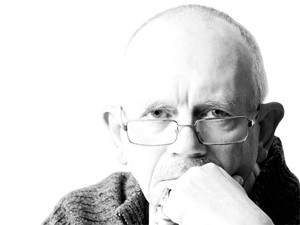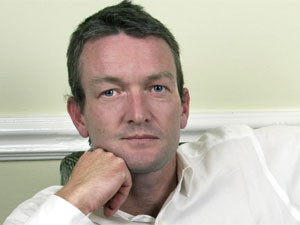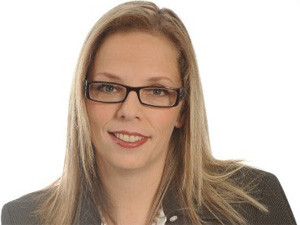
2014 was the year many deals were done, with buyout offers abounding in the sector's busiest year yet, but it was also the year government bizarrely split the Department of Communications into two entities: effectively thwarting its own plans of moving ahead with any meaningful projects, such as digital TV.
The year that is ending - with characteristic lows and highs - also saw the untimely death of Business Connexion (BCX) CEO Benjamin Mophatlane, and an increasing move towards the firm placement of the C in ICT. ITWeb picked some of the sector's top minds to find out what stood out for them in the industry in 2014 - and where they see the industry going in the year that is on our doorstep.
Industry veteran Adrian Schofield notes 2014 was "the year of the inexplicable. The year when the brief flare of Yunus Carrim was extinguished by one of the weirdest rearrangements of the deckchairs on South Africa's ship of state.
"The year of opportunity became the year of lost opportunity, through the derailing of digital migration, and the policy-making processes and the confusion surrounding the separation of responsibilities from the old Communications to the new 'frenemies' of the Department of Communications and the Department of Telecommunications and Postal Services."
Low points
BCX deputy CEO Vanessa Olver's low moment of the year was when BCX's former CEO Mophatlane suddenly passed away on 11 June. The industry mourned along with BCX, as many players in the sector expressed their grief.
"Ben was a son of the African soil, and will be remembered for his undeniable entrepreneurial spirit, enthusiasm and exceptionally warm personality, which are aspiring attributes for anyone. We lost an irreplaceable brother, colleague, leader, father and husband. Ben was a wise man with impeccable judgment, and most of all, a man of deep integrity. His death is a great tragedy," says Olver.
For the IDC, the standout low of the year was when the Department of Communications (DOC) was inexplicably split into two, in May, after the general elections. It says this move, which has failed to lead to a national ICT policy, means the "significant progress made under former minister of communications Yunnis Carrim has, to all appearances, ground to a halt".

Internet Service Providers' Association regulatory advisor Dominic Cull adds the decision to split communications into two "flies in the face of convergence of telecommunications and broadcasting; this decision has - all on its own - robbed the industry and country of the momentum achieved under former minister Carrim". Cull notes, seven months after the split was announced, industry still wants clarity on which department does what.
"Sadly, all the progressive policy suggestions made in the recently published ICT policy options paper, which we believe to be an excellent document, are difficult to digest when read against the administrative mess created by a what appears to be an overtly political decision that is devoid of practical value."
Convergence
Regardless of all the murky water created by the state, business keeps working apace, leading to what independent analyst Paul Booth says was the sector's busiest year, with deals being done all over the globe. Olver concurs, noting the moves towards industry consolidation stood out for her this year, adding this has been driven by convergence of technologies. BCX itself is in the midst of being bought out by Telkom in a R2.67 billion deal.
Olver notes the "past year has seen the boundaries between traditional IT and communications technology converging quickly. Even the lines between ICT and other sectors are also starting to disappear. The world is fast moving towards a place where every 'thing' is connected and intelligent."
Most telecoms players have identified IT services as an avenue for future growth to compensate for dwindling voice revenue, and fixed-line operators need to move into the mobile space and mobile operators need to move into the fixed-line space, says Olver. At the same time, traditional technology and software vendors are increasingly migrating towards a services model as part of a cloud strategy, she adds.
Schofield adds 2014 was characterised by convergence, as the boundaries between hardware and software, between device and application, between network and content, become less and less defined. This year was also the year of the cloud - regardless of whether the moniker is cloud, hosted services, or outsourcing - as well as big data, privacy and security, and there was a growing interest in the Internet of things, he notes.
Broadband moves
Marian Shinn, the Democratic Alliance's shadow minister of telecommunications and postal services, says the biggest trend for her this year was falling costs of communications, thanks to market competition coupled with the increasing use of mobile devices, and the deluge of applications and services being delivered through these. "But, alas, our poor and patchy coverage is a major hindrance in both urban and rural areas, and the government's delay with the opening up of the digital dividend continues to disappoint."

Cull notes, in the telecoms space, 2014 also saw the continuing slow spiralling of the Independent Communications Authority of SA "into irrelevance".
"Outside of call termination regulations, it has to be asked, what has your regulator done for you lately?"
Yet, says Cull, the "clear upside of the year has to be the consumer-based initiative in Parkhurst to drive the deployment of a fibre network in that suburb". This, he says, has led to a truly open access model and ISPA hopes further fibre deployments will reflect this open-access approach.
Despite the increasing move to fast broadband - through the launch of long-term evolution-Advanced (LTE-A), 2014 was also the year of "widening the digital divide, with LTE-A available to the rich, and a shaky 2G available to the huddled masses", Schofield declaims.
BMI-Techknowledge also points out 2014 was also the year of over-the-top (OTT) players really started to emerge, as well as e-commerce entities like Alibaba, which listed in a record-breaking debut in the US in September. Adds the research company, the emergence of OTT entities as real contenders makes 2014 the year the voice market became seriously threatened, as data has yet to fill the revenue gap left as behaviour shifts to data.
Mike Sharman, MD of Retroviral, adds 2014 has been the year of the blogger/tweeter/Facebooker/Instagrammer /YouTuber as the professionalisation of influencer marketing has led to the monetisation for previously "amateur" content creators.
Shinn anticipates next year will bring more fibre-to-the home installations, prompting an increase in video-on-demand services. This year saw several players jump into that space, such as Altech and Times Media.
On the cards
Olver notes the true convergence that started to be seen in market offerings this year will really take off next year. She adds unified communications, maturing voice over IP, and cloud tech will provide for more compelling cloud-based unified communications solutions that will be easily delivered via increasingly faster connections and greater bandwidth availability.

There will also be a shift from the Internet of things to the Internet of everything, driven by the ubiquity of user-oriented computing, says Olver. She anticipates tech being embedded in everything, from devices to processes.
Olver also expects continued convergence of market players, especially in the IT and telco space, and there will also be new market entrants. "The Indian companies and international players will continue to forge their way into our local market and the continent at large."
The IDC adds 2015 will be the year of integration - whether this is through industry merger and acquisitive action, increasing convergence between IT services providers and telco providers, the importance of interoperability between platforms as centralised cloud use increases, co-operation between the public and private sector, converged infrastructure in data centres, or converged security appliances.
Next year will also see cloud models evolving and total digital engagement becoming key, combining social, mobility and big data initiatives together to capture customer attention, and business value, says IDC. The IDC adds security concerns will remain as mobile devices, data and access methods increase.
2015 will also be the year SA finally turns on the much-delayed digital signal, as it starts its move off analogue - coinciding with the date that analogue TV signals were meant to be switched off, says Schofield. He says this will also be the year the National ICT Policy becomes a white paper, leading to more discussion and less action.
In addition, says Schofield, this will be the year e-commerce grows faster, as connected people stay away from brick-and-mortar malls, and the year the embattled Post Office - which has been besieged by strike action - rebrands as the Post Bank, as money becomes more important than mail.
Schofield anticipates next year will be the year the Apple, Android and Microsoft ecosystems entrench their brand value. It will also be the year stakeholders struggle to find the balance between the principles of a "free, open, transparent Internet", and the practicalities of the technical and commercial imperatives of traffic management and access control.
On the tech side, Shinn says next year will be the year of the smart watch, and will also mark more innovations in mobile payment systems and wearable technology, as jewellery designers bring style to make clunky tech more appealing.
Share